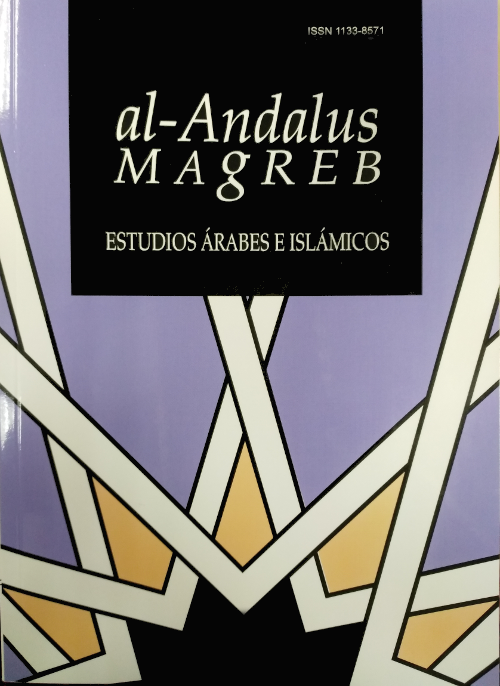al-ˁarabiyya al-maġribiyya, al-lūġat al-umm āw al-lūġat al-aṣliyya. taˁlīmha f al-madrasa li taḥsīn taṭawwur al-ˁaqliyyāt u mahārāt al-haḏra, al-qrāya w al-kitāba b el-ˁarabiyya el-fuṣḥa [Moroccan Arabic, mother tongue or native language. Teaching Morocca

Info
Abstract
“Moroccan Arabic, Mother Tongue or Native Language. Teaching Moroccan Arabic at School to improve Thinking, Speaking, Reading and Writing Skills in Standard Arabic”. We begin with the presentation of three models of coding and standardization of languages: the Castilian, the Maltese (Maltese Arabic) and the Greek. Following it, we discuss the linguistic situation in Morocco with the emphasis on the Arabic language. The Moroccan Arabic has’nt any value in the eyes of the local authorities and for it, we stress that Moroccan Arabic needs to be recognized as the language of instruction, following the recommendations of Educational Studies, aiming to improve the knowledge of Standard Arabic. Finally, we emphasize the creative value of any language, presenting some of the literary works in Moroccan Arabic and the efforts of a group of Moroccan enthusiasts, including teachers and intellectuals to codify and standardize Moroccan Arabic.
Keywords
Downloads
How to Cite
License

This work is licensed under a Creative Commons Attribution-NonCommercial-NoDerivatives 4.0 International License.
Those authors who have publications with this journal, accept the following terms:
a. Authors may retain their copyright and guarantee the journal the right of first publication of their work, which will be simultaneously subject to Licencia de reconocimiento de Creative Commons that allows third parties to share the work as long as its author is indicated. and its first publication this journal.
b. Authors may adopt other non-exclusive license agreements for the distribution of the version of the published work (eg: deposit it in an institutional electronic file) provided that the initial publication in this journal is indicated.
c. Authors are allowed and recommended to disseminate their work through the Internet (eg: in institutional telematic files or on their website) once the manuscript is accepted, which can lead to interesting exchanges and increase citations of the published work. (See El efecto del acceso abierto).
References
Actas del V Congreso Internacional de Árabe Marroquí: de la Oralidad a la Enseñanza. Madrid, Casa Árabe, 27 y 28 de abril de 2012. Paula Santillán Grimm, Luis Miguel Pérez Cañada y Francisco Moscoso García (eds.). Cuenca, Universidad de Castilla-La Mancha, 2013.
Actes du Colloque International. اللغة, اللغات. Language, Languages. La Langue, les Langues. Casablanca 11-12 Juin 2010. Casablanca, Fondation Zakoura Education, 2010.
AGUADÉ, Jordi. 2005. “Darle al pio: un “bestiario” de Youssouf Amine Elalamy en árabe marroquí”. En: Estudios de Dialectología Norteafricana y Andalusí 9 (2005), pp. 245-265.
AQUILINA, Joseph. 1997. Papers in Maltese Linguistics. Malta, The 61
University of Malta, 1997 , 1961 .
ARAGÓN HUERTA, Mercedes. 2013. Otras palabras del poeta Ahmed Lemsyeh.
Una nueva colección de zağal marroquí. Cádiz, Universidad de Cádiz.
BENÍTEZ FERNÁNDEZ, Montserrat. 2010. La política lingüística contemporánea de Marruecos: de la arabización a la aceptación del multilingüismo. En: Serie Estudios Árabes e Islámicos, Subserie Estudios de Dialectología Árabe 5. Zaragoza, Instituto de Estudios Islámicos y del Oriente Próximo.
CUMMINS, Jim. 2002. Lenguaje, poder y pedagogía. Madrid: Ministerio de
Educación, Cultura y Deporte - Ediciones Morata.
FRANGOUDAKI, Anna. 2010. “La ‘question de la langue’ en Grèce, exemple
de controverse sociale sûr l’identité, l’alphabétisation et la mise en place”.
En: Actes du Colloque International, pp. 153-166.
IRAQUI SINACEUR, Zakia. 2010. “Le prescolaire dans l’enseignement public
marocain. La langue ou les langues”. En: Actes du Colloque International..., 53-79.
LANGONE, Angela Daiana. 2003. “Ḫbār blādna. Une expérience journalistique en arabe dialectal marocain”. En: Estudios de Dialectología Norteafricana y Andalusí 7 (2003), pp. 143-151.
LAROUI, Fouad. 2011. Le drame linguistique marocain. Léchelle: Zellige.
LÁZARO CARRETER, Fernando. 1949. Las ideas lingüísticas en España durante el siglo XVIII. En: Revista de Filología Española XLVIII. Madrid, CSIC, Patronato Menéndez Pelayo, Instituto Miguel de Cervantes.
Le Maroc possible. Une offre de débat pour une ambition collective. 50 ans de développement humain. Perspective 2025. Casablanca, Éditions Maghrébines, 2006.
MORENO CABRERA, Juan Carlos. 2009. La dignidad e igualdad de las lenguas. Crítica de la discriminación lingüística. En: Filología y Lingüística 154. Madrid, Alianza Editorial.
MOSCOSO GARCÍA, Francisco. 2010. “La pentaglosia en Marruecos. Propuestas para la estandarización del árabe marroquí”. En: Miscelánea de Estudios Árabes e Islámicos 59 (2010), pp. 45-62.
MOSCOSO GARCÍA, Francisco. 2013. “El programa hispano-marroquí de enseñanza de Lengua Árabe y Cultura Marroquí (LACM) sometido a revisión. Árabe marroquí y amazige, lenguas nativas (L1)”. En: Anaquel de Estudios Árabes 24 (2013), pp. 53-69.
NEBRIJA, Antonio de. 1989. Gramática de la lengua castellana. Estudio y edición de Antonio Quilis. Madrid, Centro de Estudios Ramón Areces.
PRÉMARE, A.L. de. 1986. La Tradition orale du Mejdub: récits et quatrains inédits, recueillis, transcrits, traduits et annotés par A.L. de Prémare. Aix- en-Provence, Edisud.
TUSÓN, Jesús. 2011. Patrimoni natural. Elogi i defensa de la diversitat lingüística. En: Biblioteca Universal Empúries 187. Barcelona, Empúries.
VERMEREN, Pière. 2001. Le Maroc en transition. Paris, La découverte.
VYGOTSKY, Lev. 2010. Pensamiento y lenguaje. En: Surcos 3. Barcelona -Buenos Aires - México, Paidós.
YOUSSI, Abderrahim. 2013. “Either the camel died, or the teacher, or the sultan: The equation of ideology, politics, and literacy in the Maghreb”. En: Actas del V Congreso Internacional de Árabe Marroquí, pp. 21-58.
YOUSSI, Abderrahim. 1992. Grammaire et lexique de l’arabe marocain
moderne. Casablanca, Wallada.


